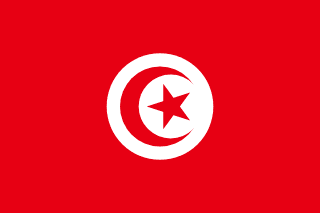

Employer of Record Guide in France
Navigating France's sophisticated employment landscape doesn't have to slow down your global expansion plans. Our comprehensive guide breaks down everything from the 35-hour work week to complex social contributions, helping you hire top French talent with confidence and full compliance.
Capital City
Currency
Languages
Population size
Services available in this country:

Key stats and facts
France offers access to highly skilled talent across thriving economic hubs like Paris and Lyon, with strong demand for professionals in healthcare, tech, and hospitality sectors. Understanding the local market dynamics—from the €11.65 minimum wage to the 30% tax environment—is crucial for successful expansion into this €2.9 trillion economy.
Major economic hubs
Skills in demand
Currency
Language
GDP per Capita
Standard Tax Rate
Your EOR guide in France
French employment law is comprehensive and employee-focused, covering everything from mandatory 5-week vacation entitlements to intricate payroll contribution structures. This detailed breakdown walks you through the essential compliance requirements, from onboarding procedures to termination protocols, ensuring your French operations run smoothly from day one.
Minimum Wage
The French minimum wage (SMIC - Salaire Minimum Interprofessionnel de Croissance) is €11.65 per hour as of January 1, 2024. This applies to all employees aged 18 and over working in mainland France and overseas territories.
Key Details:
- Monthly equivalent: €1,766.92 for a 35-hour work week
- Annual adjustments: The SMIC is reviewed annually and may be adjusted based on inflation and economic conditions
- Youth rates: Employees under 18 may receive reduced rates (90% of SMIC for 16-17 year olds)
Payroll Cycle
French employers typically follow monthly payroll cycles, with salaries paid at the end of each month. Some companies may opt for bi-monthly payments, but monthly remains the standard practice.
Payment Requirements:
- Salaries must be paid in euros
- Payment must occur within the same calendar month for work performed
- Electronic transfers are the preferred method
Individual Income Tax
France operates a progressive income tax system with rates ranging from 0% to 45%. The tax year runs from January 1 to December 31.
| Annual Income (EUR) | Tax Rate |
|---|---|
| Up to €10,777 | 0% |
| €10,778 to €27,478 | 11% |
| €27,479 to €78,570 | 30% |
| €78,571 to €168,994 | 41% |
| Over €168,994 | 45% |
Additional Considerations:
- Withholding tax: Implemented since 2019, employers withhold income tax directly from salaries
- Family quotient: Tax calculations consider family size and marital status
- Social contributions: Additional to income tax, employees pay social security contributions
Tax Residency Criteria
Individuals are considered French tax residents if they meet any of the following criteria:
- Have their main residence in France
- Spend more than 183 days in France during a calendar year
- Have their principal economic interests in France
- Exercise their professional activity primarily in France
Employer Payroll Contributions
French employers face significant social security contribution obligations, typically ranging from 40-45% of gross salary.
| Contribution Type | Employer Rate | Employee Rate |
|---|---|---|
| Health Insurance | 7.00% | 0.00% |
| Family Allowances | 3.45% | 0.00% |
| Unemployment Insurance | 4.05% | 2.40% |
| Pension (Basic) | 8.55% | 6.90% |
| Pension (Complementary) | 4.72% | 3.15% |
| Work Accidents | 0.70% | 0.00% |
| Total Estimated Range | 28-32% | 12-15% |
Note: Rates may vary based on company size, industry, and specific circumstances. Additional contributions may apply for training, transport, and housing.
Working Hours
The standard working week in France is 35 hours, established by law. This applies to most employees, with some exceptions for senior executives and specific industries.
Key Regulations:
- Daily maximum: 10 hours per day (12 hours with special authorisation)
- Weekly maximum: 48 hours per week (44 hours averaged over 12 weeks)
- Rest periods: Minimum 11 consecutive hours between working days
- Lunch break: Minimum 20 minutes for shifts over 6 hours
Overtime Pay
Overtime compensation is mandatory for hours worked beyond the 35-hour threshold.
Overtime Rates:
- Hours 36-43: 25% premium above base hourly rate
- Hours 44+: 50% premium above base hourly rate
- Alternative arrangements: Compensatory time off may be offered instead of pay
Annual Limits:
- Maximum 220 overtime hours per year per employee
- Exceptions may apply with collective agreements or special authorisations
Bonus Payments
While not legally mandated, many French companies provide the 13th month bonus (treizième mois) as part of compensation packages.
Common Bonus Types:
- 13th month: Additional month's salary, typically paid in December
- Performance bonuses: Based on individual or company performance
- Profit-sharing: Mandatory for companies with 50+ employees
Full-Time vs. Part-Time
Full-time employment: 35 hours per week or the duration specified in collective agreements Part-time employment: Less than the legal or conventional full-time duration
Part-time employees enjoy the same rights as full-time workers on a pro-rata basis, including vacation, sick leave, and social security coverage.
Vacation Leave
French employees are entitled to generous annual leave provisions under the Labour Code.
Standard Entitlement:
- Minimum: 5 weeks (25 working days) of paid annual leave
- Accrual: 2.5 days per month worked
- Reference period: June 1 to May 31 of the following year
- Payout rules: Unused leave must typically be taken, not paid out
Sick Leave
France provides comprehensive sick leave protection through the social security system.
Sick Leave Provisions:
- Duration: Up to 3 years for the same illness
- Waiting period: 3 days before social security payments begin
- Compensation: 50% of daily salary from social security, often topped up by employer
- Medical certification: Required from day 1 for absences
Maternity Leave
French maternity leave is among the most generous in Europe.
Maternity Leave Details:
- Duration: 16 weeks (6 weeks before birth, 10 weeks after)
- Extended leave: 26 weeks for third child or multiple births
- Compensation: Full salary replacement through social security and employer top-ups
- Job protection: Guaranteed return to same or equivalent position
Parental Leave
Parental Leave Options:
- Shared parental leave: 25 days that can be shared between parents
- Parental education leave: Up to 3 years (unpaid) to care for children
- Part-time options: Reduced working hours with partial compensation
Bereavement Leave
Bereavement Entitlements:
- Spouse/partner: 3 days
- Child: 5 days (7 days if child under 25)
- Parents: 3 days
- Siblings: 3 days
- Grandparents: 1 day
Personal & Family Leave
Additional Leave Types:
- Moving day: 1 day for relocation
- Marriage: 4 days for employee's wedding
- Child's marriage: 1 day
- Training leave: Various entitlements for professional development
Summary
| Leave Type | Duration | Paid? | Funding |
|---|---|---|---|
| Annual Leave | 5 weeks/year | Yes | Employer |
| Sick Leave | Up to 3 years | Partial | Social Security + Employer |
| Maternity Leave | 16-26 weeks | Yes | Social Security + Employer |
| Parental Leave | 25 days shared | Yes | Social Security |
| Bereavement | 1-7 days | Yes | Employer |
| Personal/Family | Varies | Yes | Employer |
Termination Types
Termination for Cause (Licenciement pour faute):
- Requires serious misconduct or repeated minor infractions
- No notice period or severance required for gross misconduct
- Employer must follow strict procedural requirements
Economic Dismissal (Licenciement économique):
- Due to economic difficulties, technological changes, or restructuring
- Requires consultation with employee representatives
- Higher severance payments and retraining obligations
Termination Without Specific Cause:
- Most common form of dismissal
- Requires "real and serious" reason
- Full notice and severance entitlements apply
Notice Period Requirements
Notice periods vary based on employee category and length of service.
| Length of Employment | Notice Period |
|---|---|
| Less than 6 months | None |
| 6 months - 2 years | 1 month |
| 2+ years | 2 months |
| Executives/Managers | 3 months |
Key Considerations:
- Notice can be worked or paid in lieu
- During notice, employees retain all rights and benefits
- Certain dismissals (gross misconduct) eliminate notice requirements
Severance Pay
Legal Severance (Indemnité légale):
- Applies after 8 months of continuous employment
- 1/4 month's salary per year of service (first 10 years)
- 1/3 month's salary per year of service (beyond 10 years)
- Minimum €1,766.92 (2024 rate)
Conventional Severance:
- Often higher amounts specified in collective agreements
- May include additional benefits or extended notice periods
Probationary Periods
Standard Probation Periods:
- Workers: 2 months (renewable once)
- Employees: 3 months (renewable once)
- Executives: 4 months (renewable once)
During probation, either party can terminate with reduced notice (24-48 hours after first month).
Final Pay Requirements
Employers must provide final payment within specific timeframes:
- Resignation: Next regular payday
- Dismissal: Immediately upon termination
- Must include: Outstanding salary, accrued vacation pay, severance, and any applicable bonuses
Termination Documents & Process
Required Documentation:
- Dismissal letter with specific reasons
- Work certificate (certificat de travail)
- Attestation for unemployment benefits
- Final pay statement
Procedural Requirements:
- Pre-dismissal interview (entretien préalable)
- Minimum 48-hour reflection period
- Written dismissal notification
- Respect for collective agreement procedures
Anti-Discrimination & Retaliation Laws
French law provides strong protection against discriminatory dismissals based on:
- Pregnancy or family status
- Union activity or employee representation
- Filing complaints or exercising legal rights
- Protected characteristics (age, gender, religion, disability, etc.)
Violations can result in reinstatement orders and significant damages.
National Public Holidays
France observes 11 national public holidays, most of which are paid days off for employees.
| Holiday | Date | Notes |
|---|---|---|
| New Year's Day | January 1 | |
| Easter Monday | Varies | Not observed in Alsace-Moselle |
| Labour Day | May 1 | |
| Victory in Europe Day | May 8 | |
| Ascension Day | Varies | |
| Whit Monday | Varies | |
| Bastille Day | July 14 | |
| Assumption of Mary | August 15 | |
| All Saints' Day | November 1 | |
| Armistice Day | November 11 | |
| Christmas Day | December 25 |
Regional Variations
Alsace-Moselle Region:
- Good Friday (additional holiday)
- St. Stephen's Day (December 26)
- Different religious observances due to historical German influence
Overseas Territories:
- Additional local holidays specific to each territory
- May substitute certain metropolitan holidays with local observances
Holiday Pay Rules
Eligibility Requirements:
- Must have worked at least 3 months with the employer
- Must have worked the day before and after the holiday (unless on authorised leave)
Compensation:
- Full day's pay for public holidays
- If required to work, receive normal pay plus premium (typically 100% extra)
Bridge Days (Ponts)
When public holidays fall on Tuesday or Thursday, many French companies grant "bridge days" (Monday or Friday off) to create long weekends. This practice varies by company and collective agreements.
Required Documents for Employment
Essential Employment Documents:
- Employment contract (Contrat de travail): Must specify job title, duties, salary, working hours, probation period
- Work permit: For non-EU nationals
- Social security registration: Automatic for French residents
- Tax identification: For payroll tax withholding
- Bank details: For salary payments (RIB - Relevé d'Identité Bancaire)
Additional Documentation:
- Medical examination certificate (for certain roles)
- Professional qualifications verification
- Criminal background check (for specific industries)
Language Requirements
French Language Obligations:
- Employment contracts must be in French
- Workplace communications should primarily be in French
- Foreign employees may request translation of key documents
- Collective agreements and company policies must be available in French
Exceptions:
- International companies may use English for certain executive positions
- Technical documentation may be in other languages if industry-standard
Background Checks & References
Permitted Checks:
- Criminal background (casier judiciaire) for specific roles
- Professional reference verification
- Educational qualification confirmation
- Credit checks (limited to financial roles)
Legal Restrictions:
- Must be relevant to the position
- Require explicit candidate consent
- Cannot discriminate based on protected characteristics
- Must comply with GDPR and French data protection laws
Data Protection & Privacy
GDPR Compliance Requirements:
- Explicit consent for data collection and processing
- Right to access, rectify, and delete personal data
- Data minimisation principles
- Secure data storage and transfer protocols
- Privacy impact assessments for high-risk processing
Employment-Specific Obligations:
- Employee data retention limits
- Consent for background checks and monitoring
- Cross-border data transfer restrictions
IP Assignment & Confidentiality
Intellectual Property Rights:
- Employee inventions belong to employer if created during work hours or using company resources
- Must be explicitly addressed in employment contracts
- Compensation may be required for significant inventions
Confidentiality Obligations:
- Non-disclosure clauses are enforceable
- Trade secret protection under French law
- Post-employment restrictions (limited duration and scope)
Probation Period Setup
Probationary Period Management:
- Clearly defined in employment contract
- Regular performance evaluations
- Documentation of any performance issues
- Proper notice procedures for probation termination
Onboarding Timeline
| Step | Timeline |
|---|---|
| Job offer accepted | Day 0 |
| Employment contract signed | Day 1-3 |
| Work permit processing (if needed) | Day 1-30 |
| Social security registration | Day 1-7 |
| Medical examination (if required) | Day 1-14 |
| Workplace integration begins | Day 7-14 |
| Probation period evaluation | Month 1-2 |
What the EOR Handles
Borderless AI manages:
- French employment contract preparation
- Social security and tax registration
- Payroll processing and compliance
- Leave management and tracking
- Termination procedures and documentation
- Local HR compliance and reporting
Worker Classification: Employee vs. Contractor
French law strictly regulates the distinction between employees (salariés) and independent contractors (travailleurs indépendants).
Employee Characteristics:
- Subject to employer authority and control
- Integrated into company organisation
- Provided with tools and equipment
- Regular salary and social security coverage
- Protected by labour law
Independent Contractor Characteristics:
- Operational independence and autonomy
- Own tools and equipment
- Invoice-based compensation
- Responsible for own social contributions
- Limited labour law protection
Misclassification Risks:
- Significant penalties and back-payments
- Social security contribution adjustments
- Potential criminal liability
- Employee rights retroactively applied
Unionisation & Collective Agreements
France has a complex system of collective bargaining and worker representation.
Key Elements:
- Industry-wide agreements: Apply to entire sectors
- Company-level agreements: Specific to individual employers
- Works councils: Mandatory for companies with 50+ employees
- Union representation: Strong legal protections for union activities
Impact on Employment:
- Collective agreements often provide better terms than legal minimums
- Consultation requirements for major decisions
- Strike rights and procedures
- Specific dismissal and restructuring rules
Cultural Norms & DEI Expectations
French workplace culture emphasises formality, hierarchy, and work-life balance.
Cultural Considerations:
- Formal communication styles and titles
- Respect for hierarchy and seniority
- Strong separation between work and personal life
- Lengthy lunch breaks and vacation periods
- Intellectual debate and discussion valued
Diversity & Inclusion:
- Strong anti-discrimination laws
- Mandatory gender pay gap reporting
- Disability accommodation requirements
- Religious accommodation within secular framework
Remote Work Considerations
Remote work (télétravail) gained significant legal framework following COVID-19.
Legal Requirements:
- Written agreement for regular remote work
- Right to disconnect outside working hours
- Employer responsibility for equipment and safety
- Equal treatment with office-based employees
- Voluntary nature (cannot be imposed unilaterally)
Practical Considerations:
- Home office expense reimbursement
- Insurance and liability coverage
- Performance management adaptations
- Team integration and communication protocols
Cross-Border Remote Work:
- Complex tax and social security implications
- Potential permanent establishment risks
- Immigration and work permit considerations
- Collective agreement compliance challenges
Built-in benefits packages for France
When the world is your competition, it pays to incentivize new hires and existing alike. Borderless AI benefits packages typically inlucde:

Medical Insurance

Dental Insurance

Retirement Contribution

Life Insurance

Vision Insurance
Explore other countries

Unlock global hiring potential
Simplify your payroll and hiring processes today.








